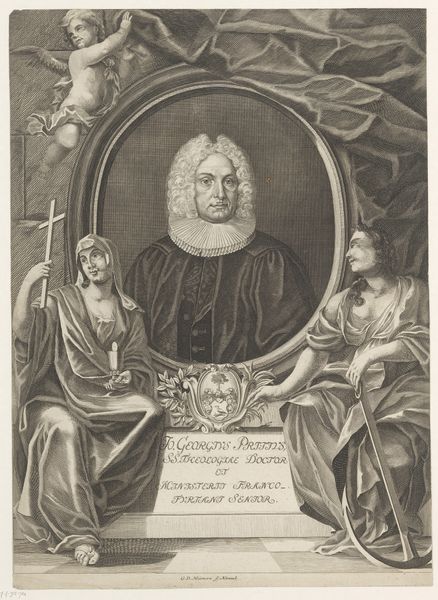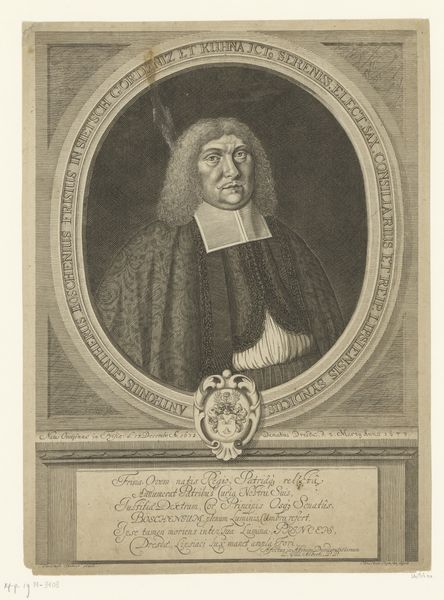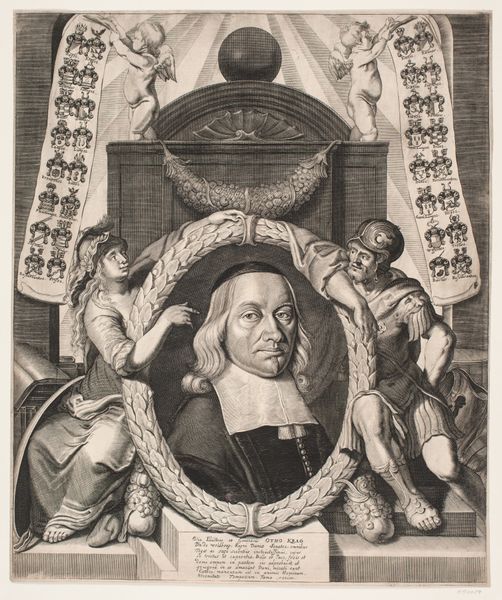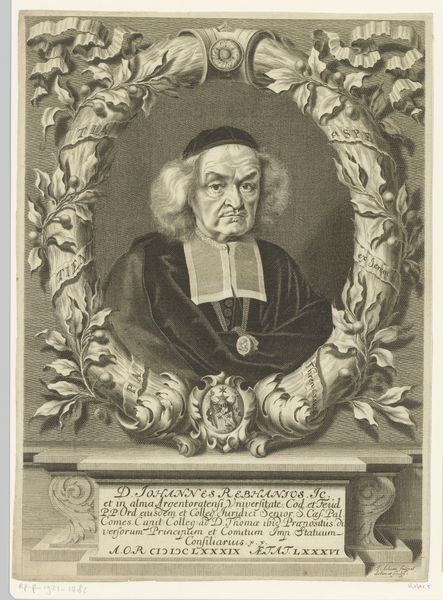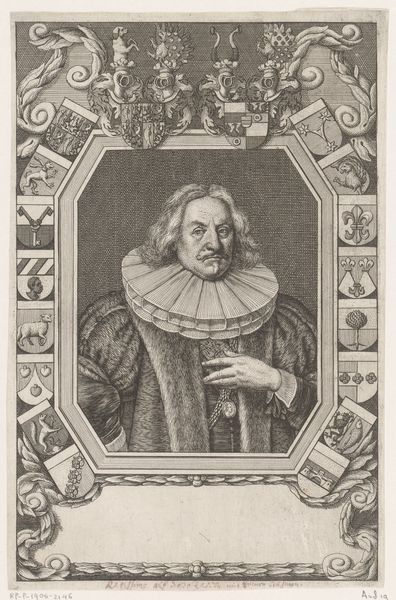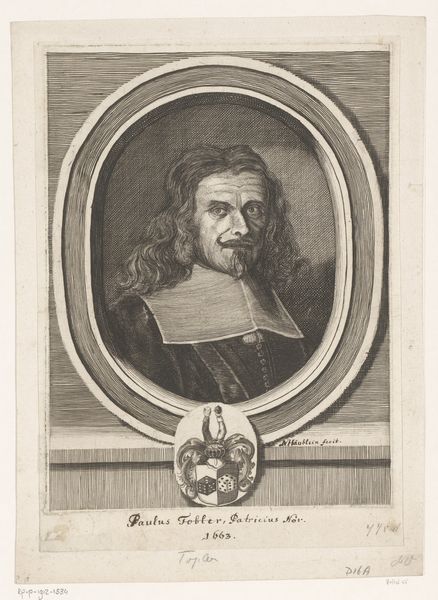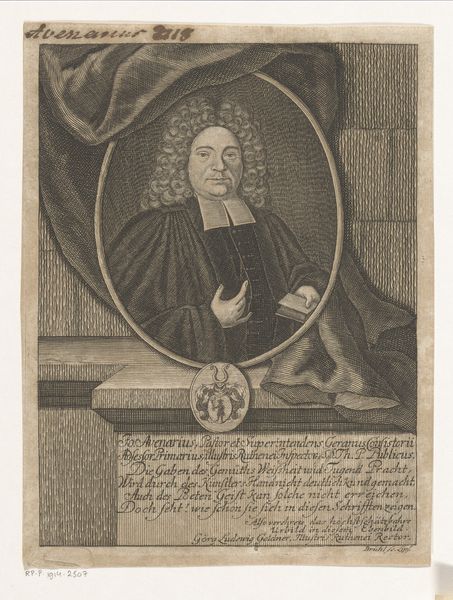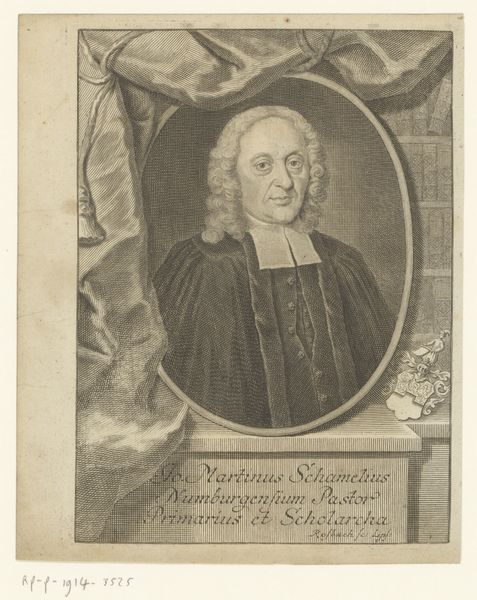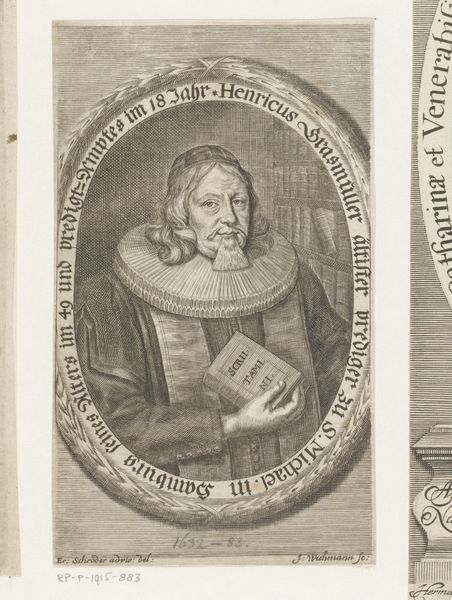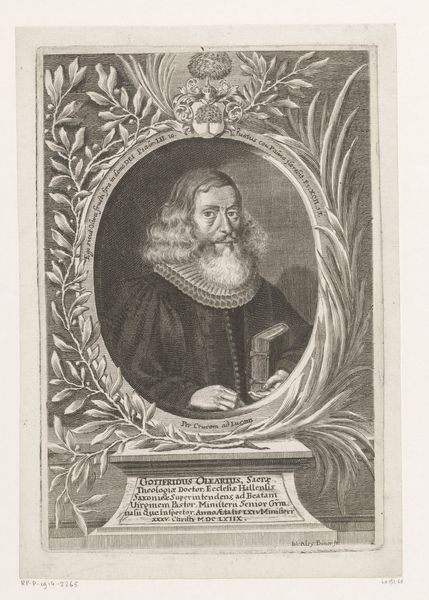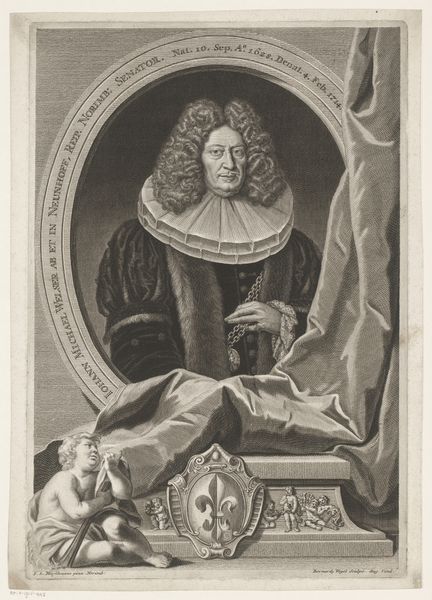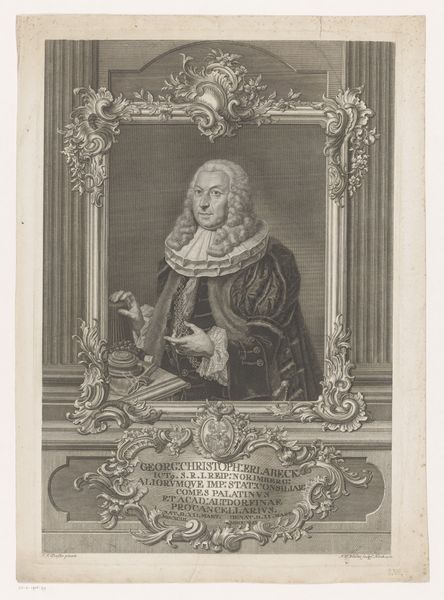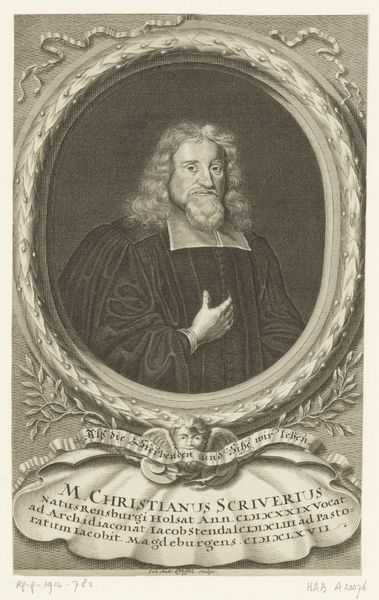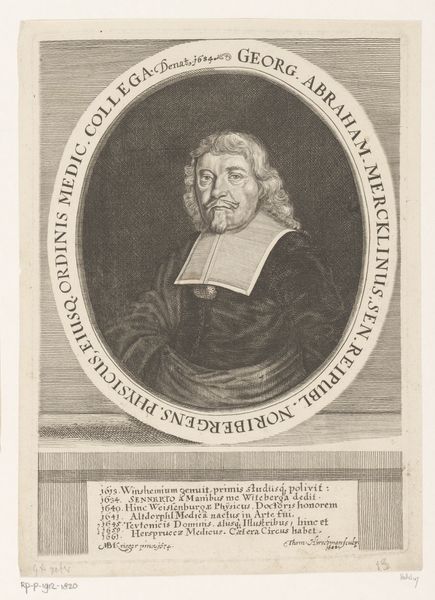
Portret van Johann Christoph Adelmann von Adelmannsfelden 1655 - 1693
0:00
0:00
eliashainzelmann
Rijksmuseum
engraving
#
portrait
#
medieval
#
baroque
#
charcoal drawing
#
history-painting
#
engraving
Dimensions: height 206 mm, width 341 mm
Copyright: Rijks Museum: Open Domain
This print portraying Johann Christoph Adelmann von Adelmannsfelden was made by Elias Hainzelmann in the late 17th century using engraving. It's a fine example of how the processes of printmaking could disseminate an image widely, in this case, of a prominent religious figure. The engraver worked meticulously, using a tool called a burin to cut lines into a copper plate. Ink was then applied to the plate, and then wiped off the surface, remaining only in the incised lines. When paper was pressed against the plate, the image transferred, resulting in the detailed portrait we see. This technique demanded great skill and patience, each line contributing to the overall texture and tone of the image. Prints like these played a crucial role in society at the time. They democratized image-making, allowing for wider access than painting afforded, and they were vital tools for spreading ideas, recording likenesses, and shaping public perception. So, the next time you see an engraving, consider the labor-intensive process and the social context that gave rise to its creation.
Comments
No comments
Be the first to comment and join the conversation on the ultimate creative platform.
